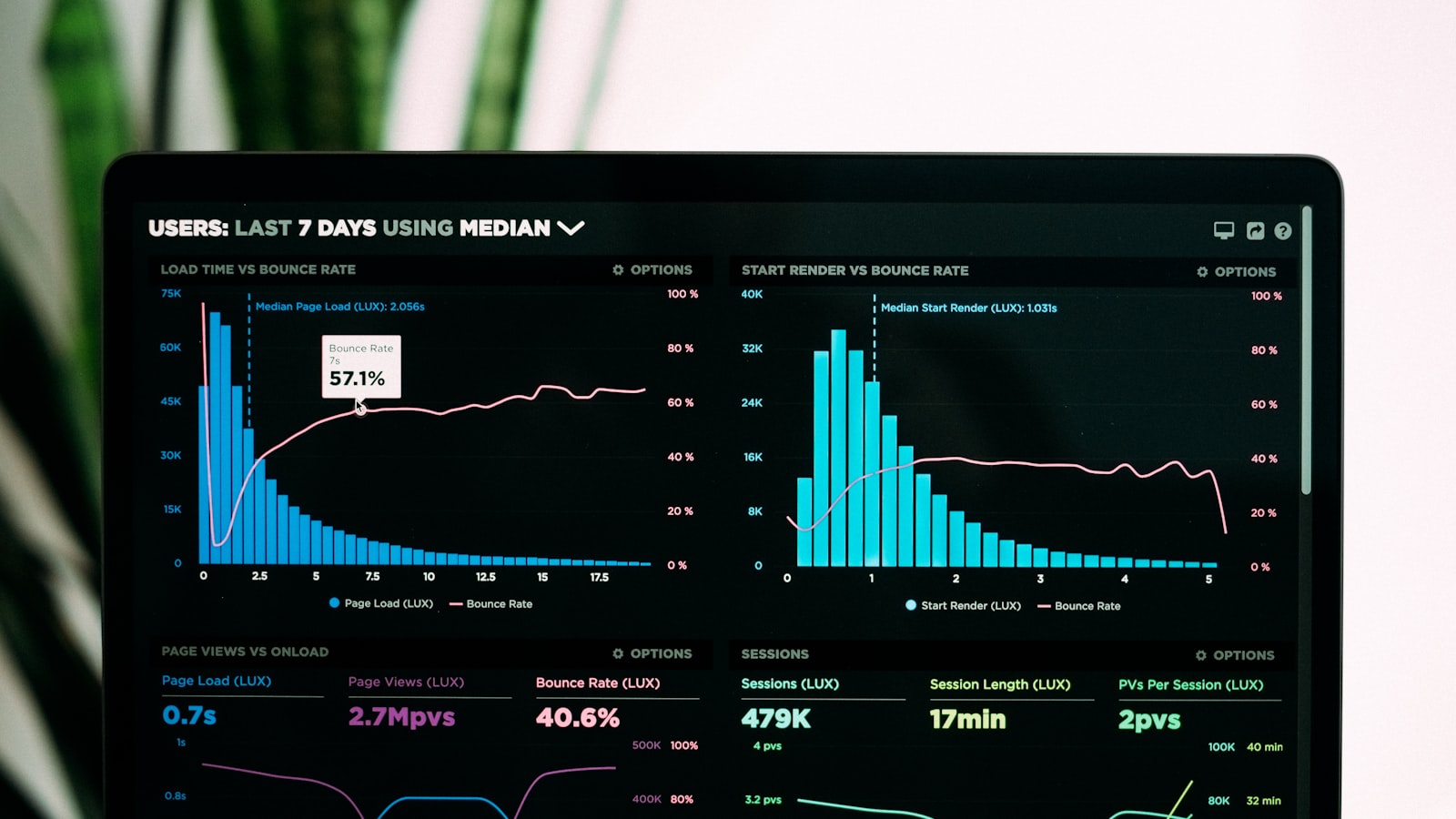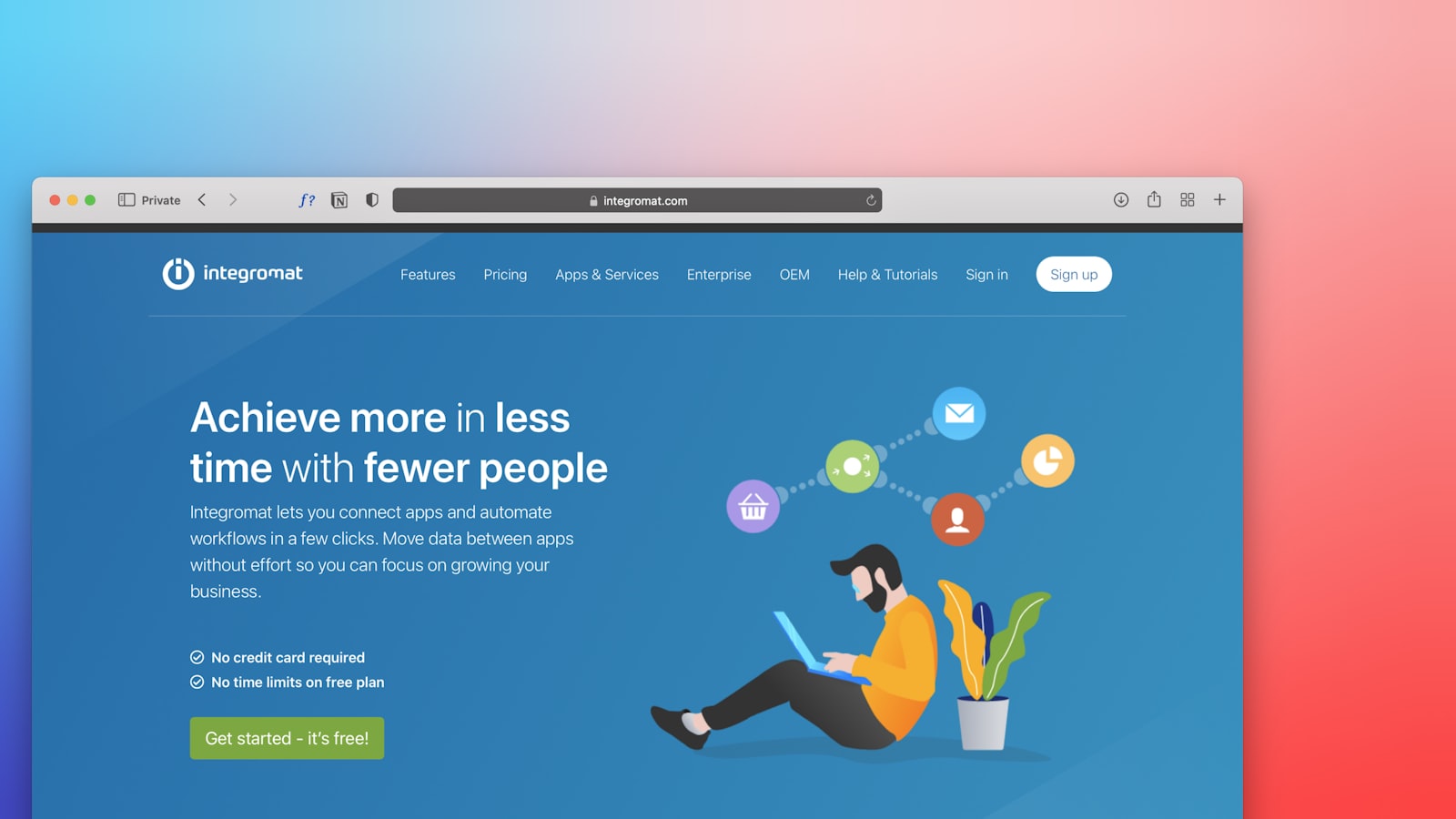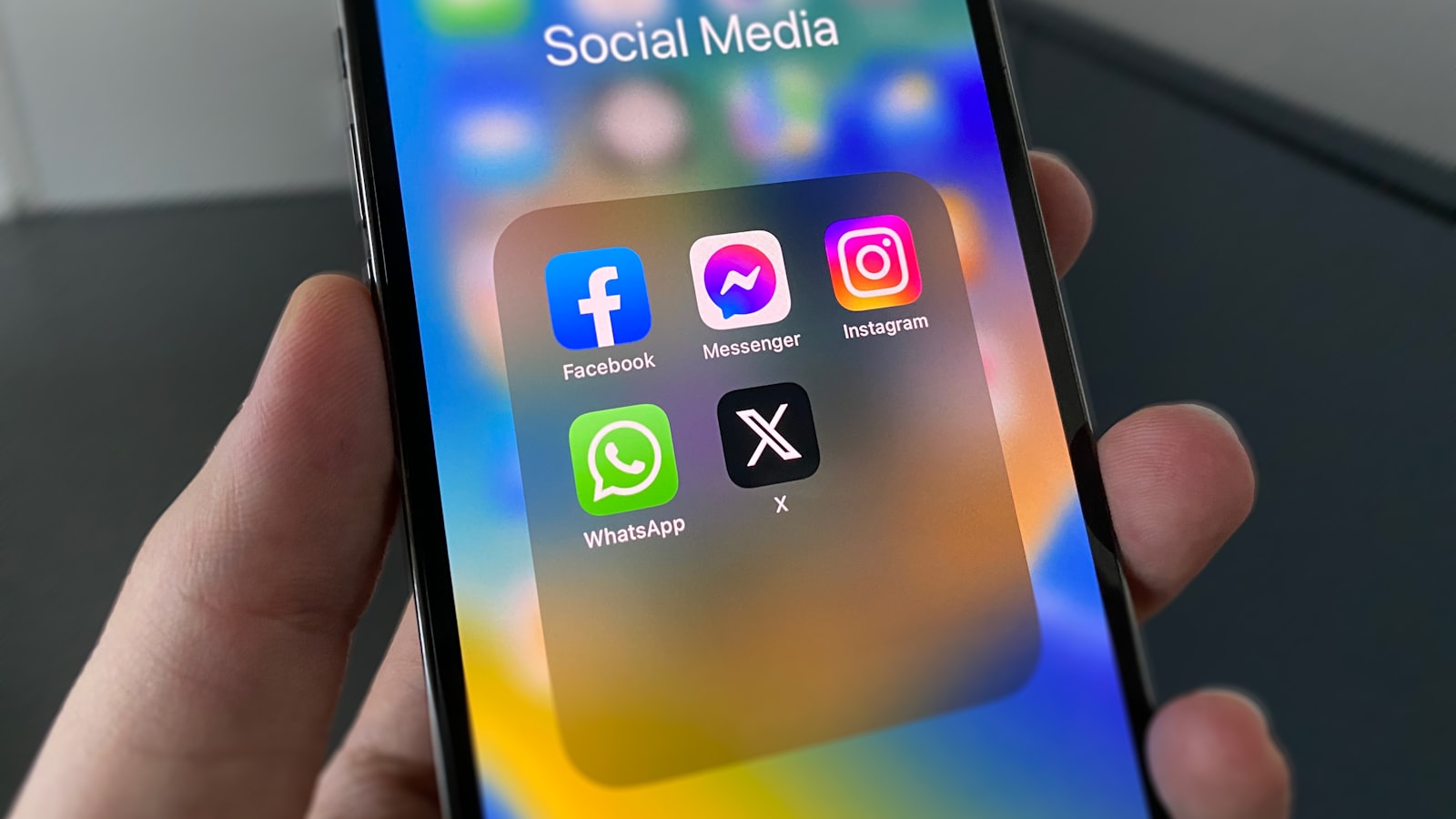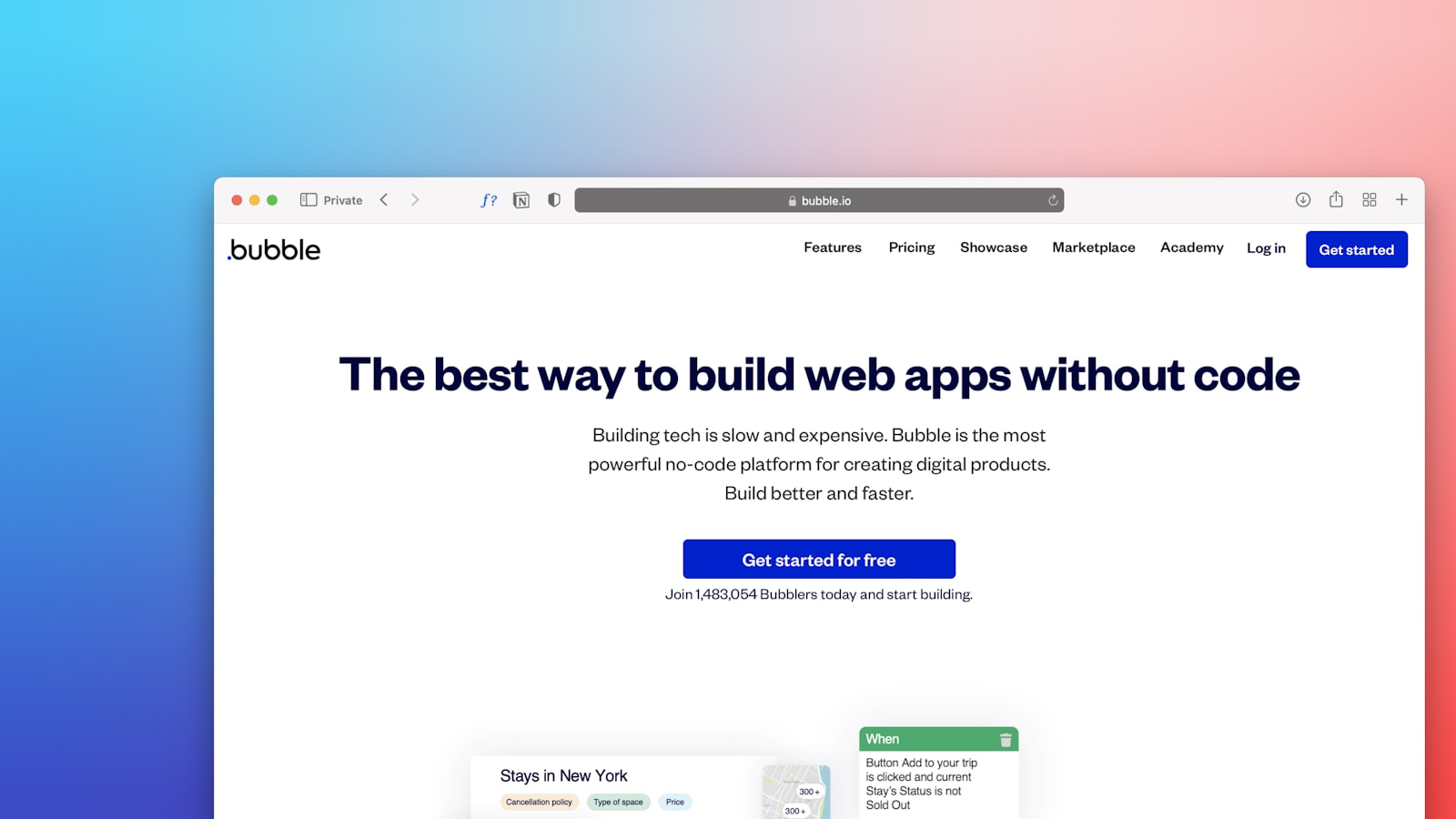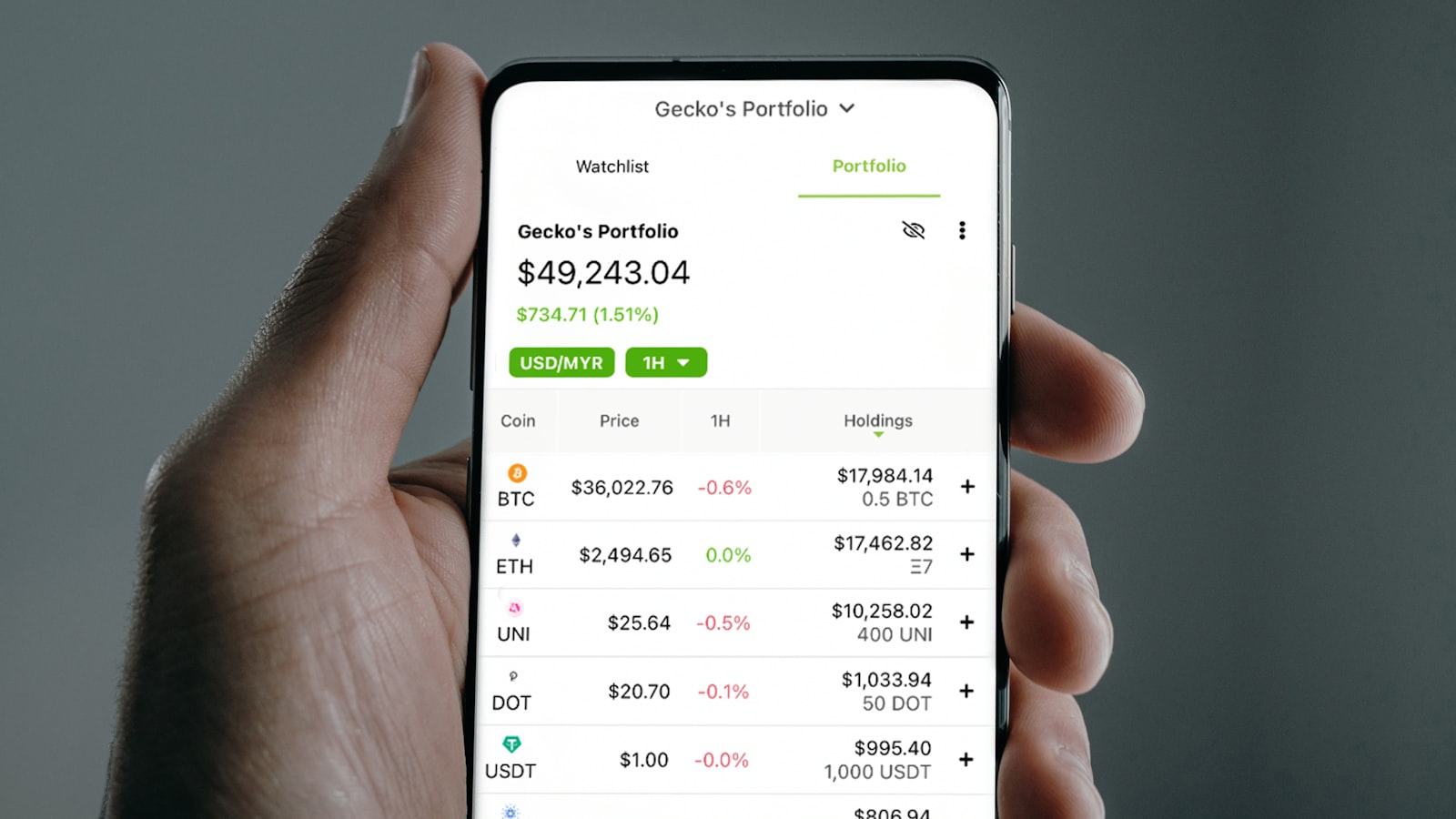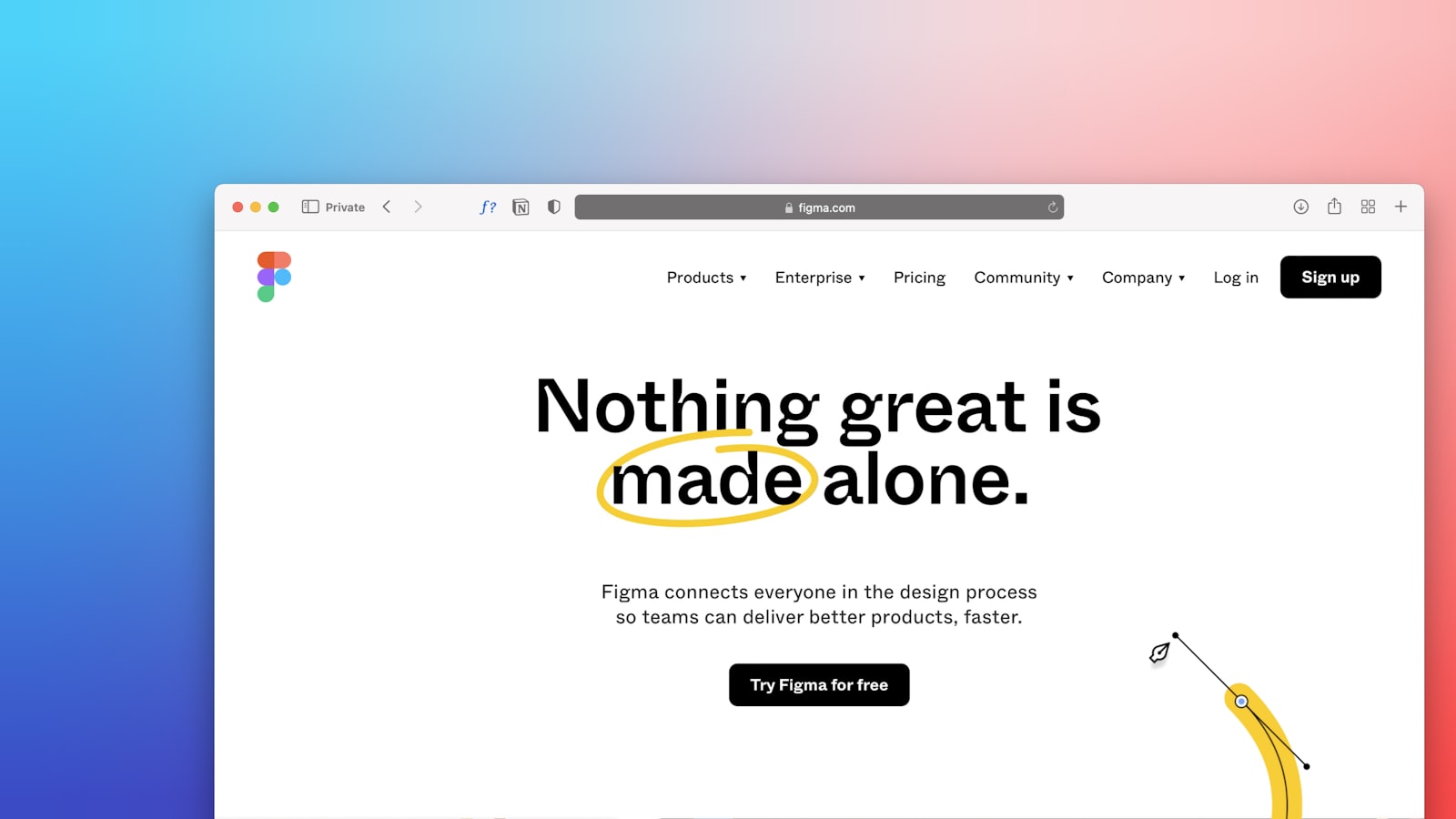The Meaning of MQL- How to Align Marketing and Sales for Better Conversions
The Meaning of MQL- How to Align Marketing and Sales for Better Conversions
The Meaning of MQL- How to Align Marketing and Sales for Better Conversions
Discover the meaning of MQL and learn how to align marketing and sales teams for improved conversions. Boost your strategy with effective collaboration.
Discover the meaning of MQL and learn how to align marketing and sales teams for improved conversions. Boost your strategy with effective collaboration.



The Meaning of MQL: How to Align Marketing and Sales for Better Conversions
Introduction
Ever felt like your marketing and sales teams are speaking different languages? You're not alone. The term MQL (Marketing Qualified Lead) often gets tossed around, but what does it really mean? And more importantly, how can understanding its true essence bridge the gap between marketing and sales for better conversions?
In this article, we’ll break down the meaning of MQL and explore why it's a crucial cog in your marketing and sales funnel. Imagine your marketing team as the chefs cooking up leads and your sales team as the waitstaff serving them. If the chefs and waitstaff are out of sync, customers get cold meals and leave unhappy. The same goes for your leads.
We'll provide practical strategies to ensure both teams are on the same page, leading to smoother operations and higher conversion rates. Ready to turn those lukewarm leads into sizzling sales? Let’s get started!
The Meaning of MQL: How to Align Marketing and Sales for Better Conversions
Introduction
Ever felt like your marketing and sales teams are speaking different languages? You're not alone. Misalignment can be a conversion killer. Enter the Marketing Qualified Lead (MQL) – a term that could be the bridge to better teamwork and higher conversions. But what exactly is an MQL, and why should you care?
An MQL is like a golden ticket in the marketing and sales funnel. It signifies a lead that is more likely to become a customer based on specific criteria. Think of it as the VIP pass that gets you closer to the conversion stage. Understanding the mql meaning isn't just jargon; it's the secret sauce for aligning your teams and boosting your bottom line.
In this article, we'll break down the role of MQLs and offer strategies to ensure both your marketing and sales teams are on the same page. Get ready for some actionable insights that will have your teams working together like peanut butter and jelly!
What is a Marketing Qualified Lead (MQL)?

Definition of MQL
A Marketing Qualified Lead (MQL) is a lead that has shown interest in a company's products or services through various marketing efforts. These leads are more likely to become customers compared to others because they have engaged with the brand in meaningful ways. Think of MQLs as the people who are curious enough to peek into your store but haven't yet decided to buy.
Characteristics of an MQL
So, what makes an MQL stand out? Here are some key characteristics:
Interest and Engagement: MQLs have actively shown interest in your offerings. They might have visited your website multiple times or engaged with your content.
Behavioral Indicators: Actions like downloading an eBook, signing up for a webinar, or filling out a contact form signal that they are more than just casual visitors.
Demographic Fit: They match your ideal customer profile based on factors like industry, job role, or company size.
Examples of MQL Actions
Identifying an MQL involves looking at specific actions that indicate a higher level of interest. Here are a few examples:
Downloading Resources: When a lead downloads whitepapers, eBooks, or case studies, it's a clear sign they are seeking more information about your offerings.
Filling Out Forms: Leads who provide their contact information through forms are showing a willingness to engage further.
Subscribing to Newsletters: Signing up for your newsletter indicates they want to stay updated with your brand.
Requesting Demos: Asking for a product demo is a strong signal that they are considering a purchase.
Repeated Website Visits: Frequent visits to your website, especially to specific product pages, show sustained interest.
By understanding these characteristics and actions, you can better identify and nurture MQLs, ultimately improving your conversion rates. For more strategies on improving lead quality, check out our 10 Strategies for Improving Lead Quality and Conversion Rates.
Identifying Marketing Qualified Leads
Criteria for Defining MQLs
Defining a Marketing Qualified Lead (MQL) is like setting the stage for a successful concert. You need to know who your audience is and what gets them excited. Here are some key criteria to consider:
Engagement Level: How actively is the lead interacting with your content? Frequent visits, downloads, and form submissions are good signs.
Demographic Fit: Does the lead match your target customer profile? This includes factors like age, location, and job title.
Behavioral Indicators: Look for actions that indicate interest, such as adding items to a cart or requesting a demo.
Lead Source: Where did the lead come from? Organic search, social media, or paid ads can all provide valuable context.
Timing: Is the lead showing interest at a time that aligns with your sales cycle?
Methods to Identify MQLs
Now that you know what to look for, let's dive into the methods to identify those golden MQLs:
Analyzing Buyer Journeys
Understanding the buyer's journey is crucial. Map out the steps your leads take from awareness to consideration to decision. This helps you pinpoint where they are in the funnel and how qualified they are.
Investigating Demographic Data
Demographic data is your friend. Use tools like Google Analytics to gather information on your leads' age, location, job title, and more. This helps you tailor your marketing efforts to attract the right audience.
Examining Historical Behavior
Past behavior often predicts future actions. Look at how similar leads have behaved in the past. Did they convert after downloading a whitepaper or attending a webinar? Use this data to refine your MQL criteria.
Gathering Customer Feedback
Don't underestimate the power of direct feedback. Surveys, interviews, and feedback forms can provide insights into what your leads are looking for and how well you're meeting their needs.
Identifying Trends and Competitive Edges
Stay ahead of the curve by identifying trends in your industry and understanding your competitive edges. This can help you attract leads who are looking for what you uniquely offer.

By mastering these methods, you'll be well on your way to identifying high-quality MQLs. For more tips on improving lead quality, check out our 10 Strategies for Improving Lead Quality and Conversion Rates.
MQL vs. SQL: Understanding the Difference
Definition of Sales Qualified Lead (SQL)
So, what exactly is a Sales Qualified Lead (SQL)? In simple terms, an SQL is a lead that has shown a strong intent to buy. These leads have moved beyond the initial stages of interest and are now ready for direct sales engagement. Think of them as the leads who have raised their hands and said, I'm interested; let's talk specifics!
Key Differences Between MQL and SQL
Understanding the distinction between MQLs and SQLs is crucial for optimizing your sales process. Here are the main differences:
MQLs: These leads have expressed interest but aren't quite ready to buy. They need more nurturing and information. Example: A visitor downloading a general industry guide.
SQLs: These leads are ready to make a purchase decision. They have engaged deeply with your content and are prepared for detailed product discussions. Example: A visitor requesting a product demo.
Transition from MQL to SQL
The transition from MQL to SQL is like passing the baton in a relay race. Here’s how to make it smooth:
Lead Scoring: Assign points based on interactions and demographics to prioritize leads. For instance, frequent visits to your pricing page could be a high-scoring activity.
Behavior Tracking: Monitor actions such as repeated visits to detailed product pages or direct inquiries.
BANT Framework: Assess Budget, Authority, Needs, and Timeline to gauge readiness. This helps in determining if the lead is ready for the sales team.
Common Pitfalls in the MQL to SQL Conversion Process
Even with the best strategies, some common pitfalls can hinder the MQL to SQL conversion:
Premature Handoff: Passing leads to sales too early can result in wasted effort and frustrated prospects. Ensure leads are genuinely ready.
Lack of Communication: Regular communication between marketing and sales teams is essential. Misalignment can lead to missed opportunities.
Inconsistent Criteria: Ensure both teams agree on what constitutes an MQL and an SQL. Inconsistent criteria can cause confusion and inefficiency.

For more strategies on improving lead quality and conversion rates, check out our 10 Strategies for Improving Lead Quality and Conversion Rates.
Looking to develop a winning SaaS growth strategy? Visit How to Develop and Execute a Winning SaaS Growth Strategy.
The Meaning of MQL: How to Align Marketing and Sales for Better Conversions
Introduction
Ever felt like your marketing and sales teams are speaking different languages? You're not alone. The term MQL (Marketing Qualified Lead) often gets tossed around, but what does it really mean? And more importantly, how can understanding its true essence bridge the gap between marketing and sales for better conversions?
In this article, we’ll break down the meaning of MQL and explore why it's a crucial cog in your marketing and sales funnel. Imagine your marketing team as the chefs cooking up leads and your sales team as the waitstaff serving them. If the chefs and waitstaff are out of sync, customers get cold meals and leave unhappy. The same goes for your leads.
We'll provide practical strategies to ensure both teams are on the same page, leading to smoother operations and higher conversion rates. Ready to turn those lukewarm leads into sizzling sales? Let’s get started!
The Meaning of MQL: How to Align Marketing and Sales for Better Conversions
Introduction
Ever felt like your marketing and sales teams are speaking different languages? You're not alone. Misalignment can be a conversion killer. Enter the Marketing Qualified Lead (MQL) – a term that could be the bridge to better teamwork and higher conversions. But what exactly is an MQL, and why should you care?
An MQL is like a golden ticket in the marketing and sales funnel. It signifies a lead that is more likely to become a customer based on specific criteria. Think of it as the VIP pass that gets you closer to the conversion stage. Understanding the mql meaning isn't just jargon; it's the secret sauce for aligning your teams and boosting your bottom line.
In this article, we'll break down the role of MQLs and offer strategies to ensure both your marketing and sales teams are on the same page. Get ready for some actionable insights that will have your teams working together like peanut butter and jelly!
What is a Marketing Qualified Lead (MQL)?

Definition of MQL
A Marketing Qualified Lead (MQL) is a lead that has shown interest in a company's products or services through various marketing efforts. These leads are more likely to become customers compared to others because they have engaged with the brand in meaningful ways. Think of MQLs as the people who are curious enough to peek into your store but haven't yet decided to buy.
Characteristics of an MQL
So, what makes an MQL stand out? Here are some key characteristics:
Interest and Engagement: MQLs have actively shown interest in your offerings. They might have visited your website multiple times or engaged with your content.
Behavioral Indicators: Actions like downloading an eBook, signing up for a webinar, or filling out a contact form signal that they are more than just casual visitors.
Demographic Fit: They match your ideal customer profile based on factors like industry, job role, or company size.
Examples of MQL Actions
Identifying an MQL involves looking at specific actions that indicate a higher level of interest. Here are a few examples:
Downloading Resources: When a lead downloads whitepapers, eBooks, or case studies, it's a clear sign they are seeking more information about your offerings.
Filling Out Forms: Leads who provide their contact information through forms are showing a willingness to engage further.
Subscribing to Newsletters: Signing up for your newsletter indicates they want to stay updated with your brand.
Requesting Demos: Asking for a product demo is a strong signal that they are considering a purchase.
Repeated Website Visits: Frequent visits to your website, especially to specific product pages, show sustained interest.
By understanding these characteristics and actions, you can better identify and nurture MQLs, ultimately improving your conversion rates. For more strategies on improving lead quality, check out our 10 Strategies for Improving Lead Quality and Conversion Rates.
Identifying Marketing Qualified Leads
Criteria for Defining MQLs
Defining a Marketing Qualified Lead (MQL) is like setting the stage for a successful concert. You need to know who your audience is and what gets them excited. Here are some key criteria to consider:
Engagement Level: How actively is the lead interacting with your content? Frequent visits, downloads, and form submissions are good signs.
Demographic Fit: Does the lead match your target customer profile? This includes factors like age, location, and job title.
Behavioral Indicators: Look for actions that indicate interest, such as adding items to a cart or requesting a demo.
Lead Source: Where did the lead come from? Organic search, social media, or paid ads can all provide valuable context.
Timing: Is the lead showing interest at a time that aligns with your sales cycle?
Methods to Identify MQLs
Now that you know what to look for, let's dive into the methods to identify those golden MQLs:
Analyzing Buyer Journeys
Understanding the buyer's journey is crucial. Map out the steps your leads take from awareness to consideration to decision. This helps you pinpoint where they are in the funnel and how qualified they are.
Investigating Demographic Data
Demographic data is your friend. Use tools like Google Analytics to gather information on your leads' age, location, job title, and more. This helps you tailor your marketing efforts to attract the right audience.
Examining Historical Behavior
Past behavior often predicts future actions. Look at how similar leads have behaved in the past. Did they convert after downloading a whitepaper or attending a webinar? Use this data to refine your MQL criteria.
Gathering Customer Feedback
Don't underestimate the power of direct feedback. Surveys, interviews, and feedback forms can provide insights into what your leads are looking for and how well you're meeting their needs.
Identifying Trends and Competitive Edges
Stay ahead of the curve by identifying trends in your industry and understanding your competitive edges. This can help you attract leads who are looking for what you uniquely offer.

By mastering these methods, you'll be well on your way to identifying high-quality MQLs. For more tips on improving lead quality, check out our 10 Strategies for Improving Lead Quality and Conversion Rates.
MQL vs. SQL: Understanding the Difference
Definition of Sales Qualified Lead (SQL)
So, what exactly is a Sales Qualified Lead (SQL)? In simple terms, an SQL is a lead that has shown a strong intent to buy. These leads have moved beyond the initial stages of interest and are now ready for direct sales engagement. Think of them as the leads who have raised their hands and said, I'm interested; let's talk specifics!
Key Differences Between MQL and SQL
Understanding the distinction between MQLs and SQLs is crucial for optimizing your sales process. Here are the main differences:
MQLs: These leads have expressed interest but aren't quite ready to buy. They need more nurturing and information. Example: A visitor downloading a general industry guide.
SQLs: These leads are ready to make a purchase decision. They have engaged deeply with your content and are prepared for detailed product discussions. Example: A visitor requesting a product demo.
Transition from MQL to SQL
The transition from MQL to SQL is like passing the baton in a relay race. Here’s how to make it smooth:
Lead Scoring: Assign points based on interactions and demographics to prioritize leads. For instance, frequent visits to your pricing page could be a high-scoring activity.
Behavior Tracking: Monitor actions such as repeated visits to detailed product pages or direct inquiries.
BANT Framework: Assess Budget, Authority, Needs, and Timeline to gauge readiness. This helps in determining if the lead is ready for the sales team.
Common Pitfalls in the MQL to SQL Conversion Process
Even with the best strategies, some common pitfalls can hinder the MQL to SQL conversion:
Premature Handoff: Passing leads to sales too early can result in wasted effort and frustrated prospects. Ensure leads are genuinely ready.
Lack of Communication: Regular communication between marketing and sales teams is essential. Misalignment can lead to missed opportunities.
Inconsistent Criteria: Ensure both teams agree on what constitutes an MQL and an SQL. Inconsistent criteria can cause confusion and inefficiency.

For more strategies on improving lead quality and conversion rates, check out our 10 Strategies for Improving Lead Quality and Conversion Rates.
Looking to develop a winning SaaS growth strategy? Visit How to Develop and Execute a Winning SaaS Growth Strategy.
The Meaning of MQL: How to Align Marketing and Sales for Better Conversions
Introduction
Ever felt like your marketing and sales teams are speaking different languages? You're not alone. The term MQL (Marketing Qualified Lead) often gets tossed around, but what does it really mean? And more importantly, how can understanding its true essence bridge the gap between marketing and sales for better conversions?
In this article, we’ll break down the meaning of MQL and explore why it's a crucial cog in your marketing and sales funnel. Imagine your marketing team as the chefs cooking up leads and your sales team as the waitstaff serving them. If the chefs and waitstaff are out of sync, customers get cold meals and leave unhappy. The same goes for your leads.
We'll provide practical strategies to ensure both teams are on the same page, leading to smoother operations and higher conversion rates. Ready to turn those lukewarm leads into sizzling sales? Let’s get started!
The Meaning of MQL: How to Align Marketing and Sales for Better Conversions
Introduction
Ever felt like your marketing and sales teams are speaking different languages? You're not alone. Misalignment can be a conversion killer. Enter the Marketing Qualified Lead (MQL) – a term that could be the bridge to better teamwork and higher conversions. But what exactly is an MQL, and why should you care?
An MQL is like a golden ticket in the marketing and sales funnel. It signifies a lead that is more likely to become a customer based on specific criteria. Think of it as the VIP pass that gets you closer to the conversion stage. Understanding the mql meaning isn't just jargon; it's the secret sauce for aligning your teams and boosting your bottom line.
In this article, we'll break down the role of MQLs and offer strategies to ensure both your marketing and sales teams are on the same page. Get ready for some actionable insights that will have your teams working together like peanut butter and jelly!
What is a Marketing Qualified Lead (MQL)?

Definition of MQL
A Marketing Qualified Lead (MQL) is a lead that has shown interest in a company's products or services through various marketing efforts. These leads are more likely to become customers compared to others because they have engaged with the brand in meaningful ways. Think of MQLs as the people who are curious enough to peek into your store but haven't yet decided to buy.
Characteristics of an MQL
So, what makes an MQL stand out? Here are some key characteristics:
Interest and Engagement: MQLs have actively shown interest in your offerings. They might have visited your website multiple times or engaged with your content.
Behavioral Indicators: Actions like downloading an eBook, signing up for a webinar, or filling out a contact form signal that they are more than just casual visitors.
Demographic Fit: They match your ideal customer profile based on factors like industry, job role, or company size.
Examples of MQL Actions
Identifying an MQL involves looking at specific actions that indicate a higher level of interest. Here are a few examples:
Downloading Resources: When a lead downloads whitepapers, eBooks, or case studies, it's a clear sign they are seeking more information about your offerings.
Filling Out Forms: Leads who provide their contact information through forms are showing a willingness to engage further.
Subscribing to Newsletters: Signing up for your newsletter indicates they want to stay updated with your brand.
Requesting Demos: Asking for a product demo is a strong signal that they are considering a purchase.
Repeated Website Visits: Frequent visits to your website, especially to specific product pages, show sustained interest.
By understanding these characteristics and actions, you can better identify and nurture MQLs, ultimately improving your conversion rates. For more strategies on improving lead quality, check out our 10 Strategies for Improving Lead Quality and Conversion Rates.
Identifying Marketing Qualified Leads
Criteria for Defining MQLs
Defining a Marketing Qualified Lead (MQL) is like setting the stage for a successful concert. You need to know who your audience is and what gets them excited. Here are some key criteria to consider:
Engagement Level: How actively is the lead interacting with your content? Frequent visits, downloads, and form submissions are good signs.
Demographic Fit: Does the lead match your target customer profile? This includes factors like age, location, and job title.
Behavioral Indicators: Look for actions that indicate interest, such as adding items to a cart or requesting a demo.
Lead Source: Where did the lead come from? Organic search, social media, or paid ads can all provide valuable context.
Timing: Is the lead showing interest at a time that aligns with your sales cycle?
Methods to Identify MQLs
Now that you know what to look for, let's dive into the methods to identify those golden MQLs:
Analyzing Buyer Journeys
Understanding the buyer's journey is crucial. Map out the steps your leads take from awareness to consideration to decision. This helps you pinpoint where they are in the funnel and how qualified they are.
Investigating Demographic Data
Demographic data is your friend. Use tools like Google Analytics to gather information on your leads' age, location, job title, and more. This helps you tailor your marketing efforts to attract the right audience.
Examining Historical Behavior
Past behavior often predicts future actions. Look at how similar leads have behaved in the past. Did they convert after downloading a whitepaper or attending a webinar? Use this data to refine your MQL criteria.
Gathering Customer Feedback
Don't underestimate the power of direct feedback. Surveys, interviews, and feedback forms can provide insights into what your leads are looking for and how well you're meeting their needs.
Identifying Trends and Competitive Edges
Stay ahead of the curve by identifying trends in your industry and understanding your competitive edges. This can help you attract leads who are looking for what you uniquely offer.

By mastering these methods, you'll be well on your way to identifying high-quality MQLs. For more tips on improving lead quality, check out our 10 Strategies for Improving Lead Quality and Conversion Rates.
MQL vs. SQL: Understanding the Difference
Definition of Sales Qualified Lead (SQL)
So, what exactly is a Sales Qualified Lead (SQL)? In simple terms, an SQL is a lead that has shown a strong intent to buy. These leads have moved beyond the initial stages of interest and are now ready for direct sales engagement. Think of them as the leads who have raised their hands and said, I'm interested; let's talk specifics!
Key Differences Between MQL and SQL
Understanding the distinction between MQLs and SQLs is crucial for optimizing your sales process. Here are the main differences:
MQLs: These leads have expressed interest but aren't quite ready to buy. They need more nurturing and information. Example: A visitor downloading a general industry guide.
SQLs: These leads are ready to make a purchase decision. They have engaged deeply with your content and are prepared for detailed product discussions. Example: A visitor requesting a product demo.
Transition from MQL to SQL
The transition from MQL to SQL is like passing the baton in a relay race. Here’s how to make it smooth:
Lead Scoring: Assign points based on interactions and demographics to prioritize leads. For instance, frequent visits to your pricing page could be a high-scoring activity.
Behavior Tracking: Monitor actions such as repeated visits to detailed product pages or direct inquiries.
BANT Framework: Assess Budget, Authority, Needs, and Timeline to gauge readiness. This helps in determining if the lead is ready for the sales team.
Common Pitfalls in the MQL to SQL Conversion Process
Even with the best strategies, some common pitfalls can hinder the MQL to SQL conversion:
Premature Handoff: Passing leads to sales too early can result in wasted effort and frustrated prospects. Ensure leads are genuinely ready.
Lack of Communication: Regular communication between marketing and sales teams is essential. Misalignment can lead to missed opportunities.
Inconsistent Criteria: Ensure both teams agree on what constitutes an MQL and an SQL. Inconsistent criteria can cause confusion and inefficiency.

For more strategies on improving lead quality and conversion rates, check out our 10 Strategies for Improving Lead Quality and Conversion Rates.
Looking to develop a winning SaaS growth strategy? Visit How to Develop and Execute a Winning SaaS Growth Strategy.
Need help with SEO?
Need help with SEO?
Need help with SEO?
Join our 5-day free course on how to use AI to get more traffic to your website!
Explode your organic traffic and generate red-hot leads without spending a fortune on ads
Claim the top spot on search rankings for the most lucrative keywords in your industry
Cement your position as the undisputed authority in your niche, fostering unshakable trust and loyalty
Skyrocket your conversion rates and revenue with irresistible, customer-centric content
Conquer untapped markets and expand your reach by seizing hidden keyword opportunities
Liberate your time and resources from tedious content tasks, so you can focus on scaling your business
Gain laser-sharp insights into your ideal customers' minds, enabling you to create products and content they can't resist
Harness the power of data-driven decision-making to optimize your marketing for maximum impact
Achieve unstoppable, long-term organic growth without being held hostage by algorithm updates or ad costs
Stay light-years ahead of the competition by leveraging cutting-edge AI to adapt to any market shift or customer trend
Explode your organic traffic and generate red-hot leads without spending a fortune on ads
Claim the top spot on search rankings for the most lucrative keywords in your industry
Cement your position as the undisputed authority in your niche, fostering unshakable trust and loyalty
Skyrocket your conversion rates and revenue with irresistible, customer-centric content
Conquer untapped markets and expand your reach by seizing hidden keyword opportunities
Liberate your time and resources from tedious content tasks, so you can focus on scaling your business
Gain laser-sharp insights into your ideal customers' minds, enabling you to create products and content they can't resist
Harness the power of data-driven decision-making to optimize your marketing for maximum impact
Achieve unstoppable, long-term organic growth without being held hostage by algorithm updates or ad costs
Stay light-years ahead of the competition by leveraging cutting-edge AI to adapt to any market shift or customer trend
Explode your organic traffic and generate red-hot leads without spending a fortune on ads
Claim the top spot on search rankings for the most lucrative keywords in your industry
Cement your position as the undisputed authority in your niche, fostering unshakable trust and loyalty
Skyrocket your conversion rates and revenue with irresistible, customer-centric content
Conquer untapped markets and expand your reach by seizing hidden keyword opportunities
Liberate your time and resources from tedious content tasks, so you can focus on scaling your business
Gain laser-sharp insights into your ideal customers' minds, enabling you to create products and content they can't resist
Harness the power of data-driven decision-making to optimize your marketing for maximum impact
Achieve unstoppable, long-term organic growth without being held hostage by algorithm updates or ad costs
Stay light-years ahead of the competition by leveraging cutting-edge AI to adapt to any market shift or customer trend
